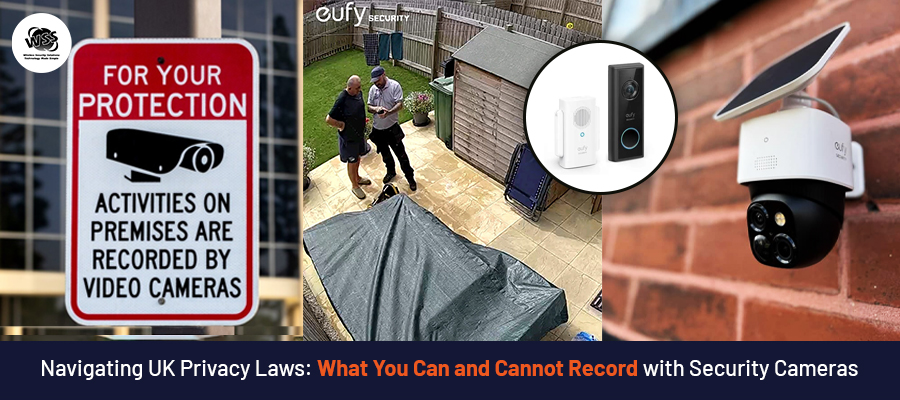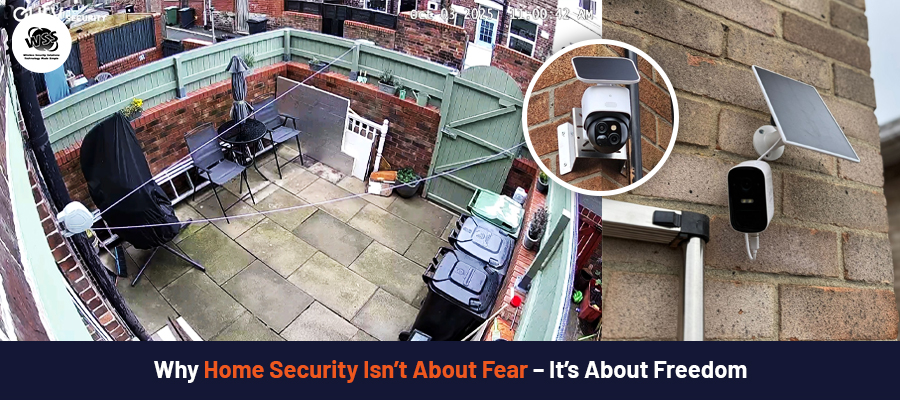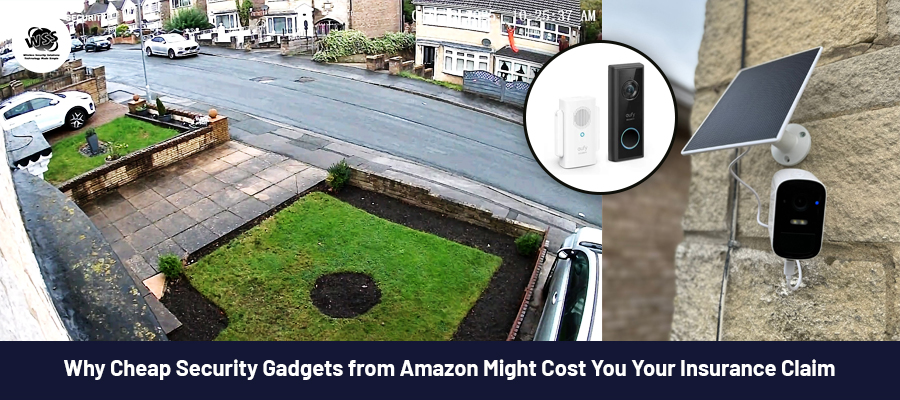
Picture this: you’ve just installed a shiny new security camera system to protect your home, only to find an angry neighbour at your door claiming you’re spying on them. Sound familiar? You’re not alone. Thousands of UK homeowners face this exact situation every year, often because they’re unaware of the strict privacy laws governing CCTV use.
The truth is, installing security cameras in the UK isn’t as straightforward as mounting them and switching them on. There are specific rules you must follow, and breaking them can land you in serious legal trouble – including hefty fines and court orders to remove your cameras entirely.
What the Law Actually Says (And Why Most People Get It Wrong)
Here’s something most homeowners don’t realise: your security cameras are subject to UK GDPR (General Data Protection Regulation) and the Data Protection Act 2018, even if you’re just protecting your own property. Yes, that’s right – the same laws that govern how big corporations handle your data also apply to your home security system.
The key principle is simple: you can only record what’s necessary to protect your property. But here’s where it gets tricky – “necessary” has a very specific legal meaning that most people misunderstand.
What you CAN record:
- Your own property boundaries (gardens, driveways, doorways)
- Immediate approach areas to your home
- Areas where you have legitimate security concerns
What you CANNOT record:
- Your neighbour’s garden, windows, or private spaces
- Public footpaths or roads (unless absolutely unavoidable)
- Areas where people have a “reasonable expectation of privacy”
The Hidden Costs of Getting It Wrong
Most homeowners focus on the upfront cost of cameras but ignore the potential legal expenses. A single privacy complaint can result in:
- ICO (Information Commissioner’s Office) investigations
- Legal fees ranging from £500 to £5,000
- Mandatory camera repositioning or removal
- Compensation claims from affected neighbours
One lesser-known fact: even if your camera doesn’t actively record certain areas, simply having the capability to view private spaces can breach privacy laws. This means camera positioning and field of view are absolutely critical.
The Neighbour Complaint Nightmare (And How Modern Tech Solves It)
Traditional security cameras are complaint magnets because they create uncertainty. Neighbours can’t tell what you’re actually recording, leading to assumptions, arguments, and formal complaints.
Modern wireless security systems solve this problem through several innovative features:
✓ Privacy Masking Technology: Advanced cameras can automatically blur or block out neighbouring properties in real-time. Your neighbour’s garden appears as a grey block on your footage, but you still capture anyone who enters your property.
✓ Intelligent Motion Detection: Instead of recording everything, smart cameras distinguish between genuine security threats and everyday activities. They won’t trigger for cats, wind-blown leaves, or neighbours in their own gardens.
✓ Transparent Monitoring Boundaries: Some systems can display visible boundary lines showing exactly what’s being monitored, eliminating guesswork and reducing neighbour concerns.
False Alarms: The Problem Everyone Faces But Nobody Talks About
Here’s a startling statistic: over 95% of security alarm activations in the UK are false alarms. These aren’t just inconvenient – they’re actively dangerous. False alarms can:
- Desensitise you to real threats
- Strain relationships with neighbours who hear constant alerts
- Waste emergency services’ time and resources
- Lead to “alarm fatigue” where genuine incidents are ignored
Traditional systems trigger on everything: delivery drivers, passing animals, weather conditions, even shadows from moving clouds. This creates a cycle of panic and disappointment that makes your security system more of a stress source than a protection tool.
How Smart Technology Eliminates False Alarms
Modern wireless security solutions use artificial intelligence to dramatically reduce false alarms:
✓ Human vs. Animal Recognition: Advanced cameras distinguish between people and pets, only alerting for genuine human presence.
✓ Facial Recognition: Systems can learn familiar faces (family, regular visitors, delivery drivers) and avoid triggering unnecessary alerts.
✓ Behaviour Analysis: Smart cameras detect suspicious behaviour patterns rather than simple movement, focusing on genuine security concerns.
✓ Weather Compensation: Modern systems adjust sensitivity based on weather conditions, preventing rain or wind from triggering false alerts.
✓ Zone-Based Monitoring: You can create specific alert zones, ensuring cameras only notify you about activity in high-priority areas.
Lesser-Known Legal Requirements That Could Catch You Out
Beyond basic privacy rules, there are several legal obligations most homeowners overlook:
◐ Signage Requirements: You must display clear signs indicating CCTV is in operation. These signs need specific wording and must be visible before people enter monitored areas.
◐ Data Retention Limits: You can’t keep footage indefinitely. Personal CCTV footage should typically be deleted after 30 days unless there’s a specific security incident.
◐ Subject Access Requests: If your cameras capture neighbours or visitors, they have the right to request copies of footage featuring them. You must respond within one month.
◐ Registration Requirements: While most domestic CCTV doesn’t require ICO registration, systems covering public areas or extensive monitoring might need official registration.
The Professional Advantage: Why DIY Often Backfires
Many homeowners attempt DIY installation to save money, but this often creates more problems than it solves. Professional installation ensures:
- Correct camera positioning to avoid privacy violations
- Proper system configuration for reliable operation
- Compliance with all legal requirements from day one
- Ongoing support when issues arise
At Wireless Security Solutions, we’ve seen countless cases where DIY installations resulted in neighbour disputes, legal problems, and systems that simply don’t work when needed most.
Your Next Steps: Getting It Right From The Start
Don’t let privacy laws and technical complexity stop you from protecting your property. Modern wireless security systems make it easier than ever to stay within legal boundaries while maintaining effective protection.
The key is working with specialists who understand both the technology and the legal requirements. Professional assessment ensures your system protects your property without creating problems with neighbours or authorities.
Call Us Today for a free consultation on wireless security solutions that comply with UK privacy laws whilst eliminating false alarms and neighbour complaints.
Our Support Services include:
- Legal compliance assessment
- Professional installation and setup
- Ongoing technical support
- System updates and maintenance
Visit us to discover how modern technology can provide robust security without the traditional headaches.
Don’t wait until problems arise – get your security system right from the start, and enjoy genuine peace of mind knowing you’re protected and compliant.
Search
Recent Posts

February 18, 2026

January 19, 2026

December 10, 2025

Leave a Reply